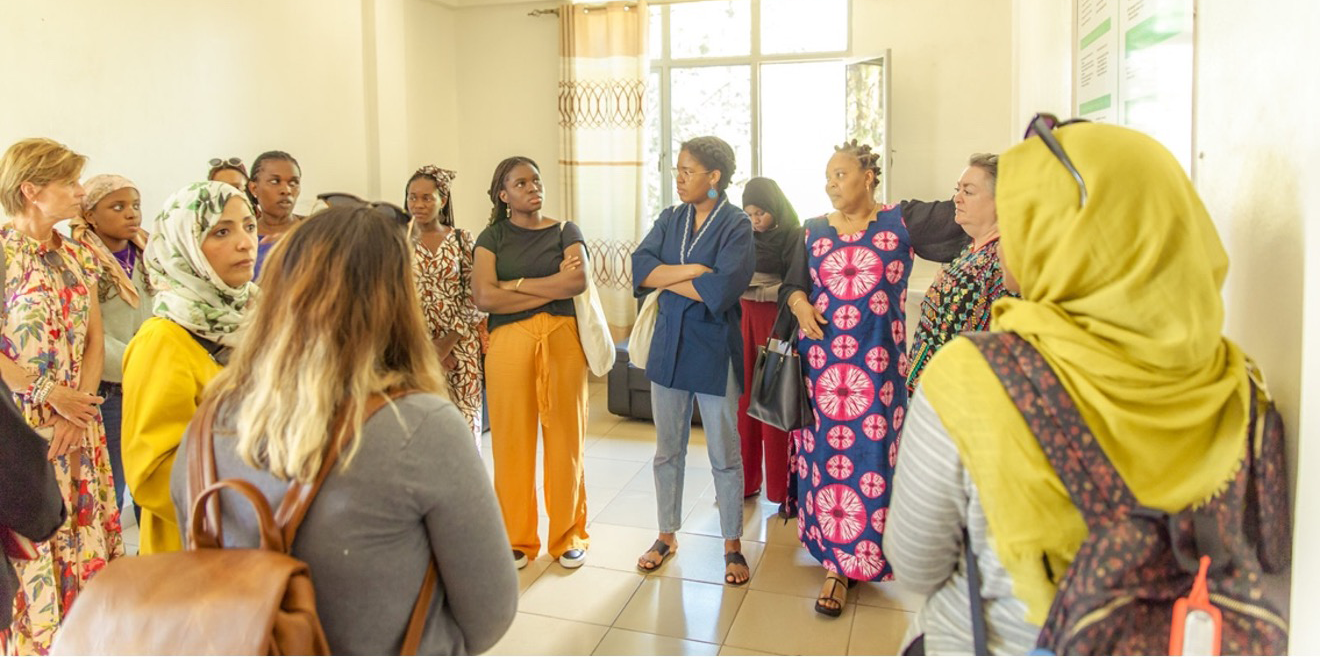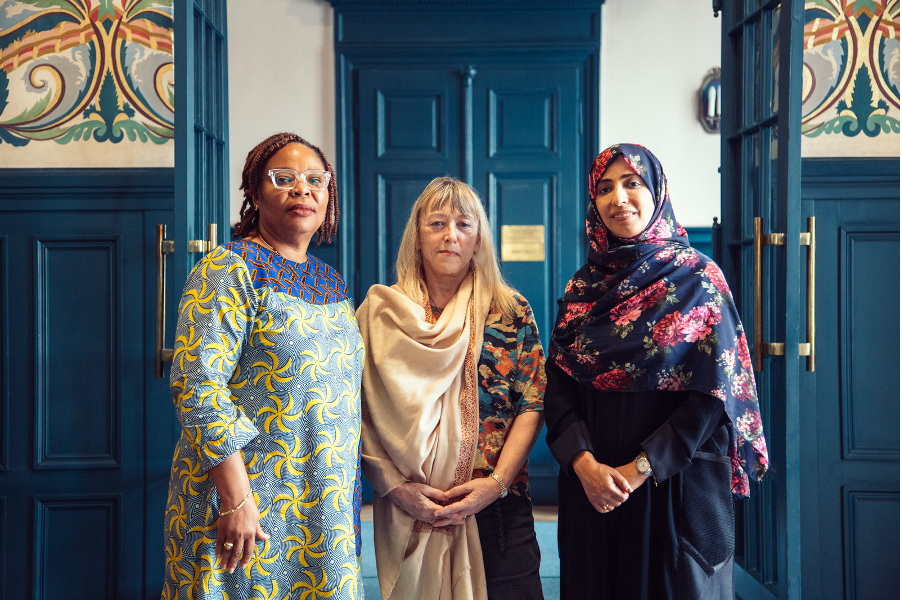
Our Work
Policy Development
The Institute works to improve and strengthen policy development by applying a gender lens to law and policy to institutionalize social movement demands.
- Davis, Lisa. Policy Paper Briefings for Individual Countries (9 in total) at the ICC (Central African Republic, Afghanistan, Philippines, Uganda, Mali, Myanmar, Ukraine, Venezuela, Libya). June 5-16, 2023.
- Davis, Lisa. “Dusting Off the Law Books on the Crime of Gender Persecution,” Just Security. May 30, 2023.
- Davis, Lisa. Briefing on the Policy Paper to OHCHR, April 28, 2023.
- Institute on Gender, Law, and Transformative Peace and MADRE. “The Crime Against Humanity of Gender Persecution Series – Volume One Gender Persecution in Afghanistan: A Crime Against Humanity – Part One: Severe Deprivation of the Fundamental Rights to Education, Assembly, and Expression,” March 2023.
- The Office of the Prosecutor, International Criminal Court. “ICC Policy Paper on the Crimes of Gender Persecution,” December 7, 2022.
Movement Support
The Institute serves as a hub for cross-sectoral, cross-movement, and transnational exchange of ideas within and across social movements and diverse communities of advocates.

MEETING WITH GRASSROOTS FEMINIST PEACE ORGANIZATIONS IN RWANDA
In 2023, Executive Director Leymah Gbowee joined the Nobel Women’s Initiative delegation to Rwanda focusing on care and healing as part of feminist peace-making. They met with numerous grassroots organizations, including the AVEGA Association of Widows of Genocide, Roots and Shoots, and SEVOTA.
COALITION-BUILDING WITH WOMEN’S RIGHTS ACTIVISTS IN POLAND AND UKRAINE
In 2022, Executive Director Leymah Gbowee and Senior Director Mikaela Luttrell-Rowland accompanied the Nobel Women’s Initiative on a trip to Poland and Ukraine during the summer of 2022, which began on World Refugee Day (June 20) and concluded on June 24 (four months after the Russian invasion of Ukraine).
While on the trip, they joined a delegation that met with hundreds of displaced women and dozens of women’s, human rights, and humanitarian organizations, along with activists in Lviv, Ukraine as well as in Krakow and Rzeszow, Poland.

During the trip, we visited the Lviv Train Station and spoke with women conductors and railway staff about their experiences transporting Ukrainians fleeing the conflict. The Station is a destination for millions fleeing the war, as well as for those returning. “Thank you for telling us your stories. But they aren’t just stories, these are your lives. The work you do. You are witnesses to humanity. You are the super-women conductors of Lviv,” said Executive Director Leymah Gbowee, speaking with three representatives of Ukrainian Railways.
- Forbes, October 28, 2022: Nobel Peace Prize Laureates Spotlight The Brave, Visionary Women Of Ukraine
Legal Mobilization
The Institute changes and challenges social norms and attitudes through legal research and advocacy that both support and is part of movement-building efforts.
The Institute has worked with policymakers, INGOs, and funders to advocate in the human rights spheres from the International Criminal Court to the United Nations, to disseminate information, and to bring community-based gender justice advocates into these decision-making spaces as experts and knowledge-holders.
We have also undertaken legal advocacy workshops in the development of women’s rights and gender justice in emerging treaties, tribunals, transitional justice processes and human rights mechanisms as well as regional and domestic systems.

Gender Persecution as a Legal Tool
The Institute’s legal mobilization strategy has focused on establishing gender persecution as a legal tool under international human rights law. Advisory Board Co-Chair Professor Lisa Davis published a groundbreaking gender persecution policy with the International Criminal Court.
- The Office of the Prosecutor, International Criminal Court. “ICC Policy Paper on the Crimes of Gender Persecution,” December 7, 2022.
Professor Davis has taught a number of classes on gender persecution. Professor Davis and the Institute team have written and distributed a wide range of legal briefings and policy papers on gender persecution.
The Institute has also hosted a number of international convenings on the topic with a range of stakeholders, ranging from grassroots activists to the world’s courts.
Coming soon: The Observatory, a website documenting gender-based crimes in conflict globally, including LGBTQI+ crimes in conflict.
Research
Learn more about our research.
Coming soon.

